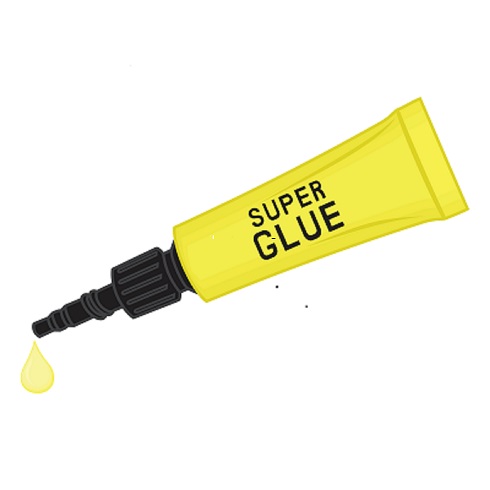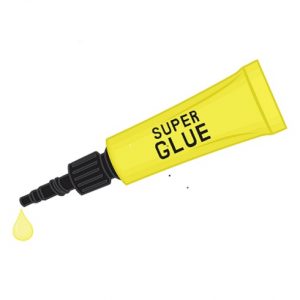Have you ever used crazy glue and NOT glued your fingers together?
Recently I tried to put the shattered pieces of a ceramic music box back together. Several years ago, I convinced my wife that this delicate family heirloom would survive a flight home in checked baggage.
The music box was okay. But the fragile, hand-painted ceramic figure of an Irish dancing girl mounted on top was in more than 20 pieces. At that moment, I quietly vowed that someday I would make this right.
I armed myself with several tiny, single-use tubes of super glue and set to work. Impressed with my early progress, I began to work more quickly. Then I promptly fused my fingers together. Panic began to set in while my wife searched the internet for ways to separate superglued fingers. (Try nail polish remover with acetone or immersing the fingers in warm soapy water.) Twenty minutes later, I was back on the project. Within 15 minutes, my fingers were fused again. And so on.
Similarly, when a PR crisis hits, the pros know it takes time to put the pieces of an organization’s reputation back together. The pressure to defuse a breaking news story can sometimes make matters worse.
Lately it seems airlines are struggling to avoid not only rough air but also rough media coverage. Many of these crises start out as random bad luck. But too often, what could be a few days of difficult news becomes two or three weeks of increasingly painful headlines.
Most experts say a crisis is no time to hide. Respond quickly. Get out in front of the story before it gets out of control. Issue a statement. Poof– the media fire is extinguished.
Except when it isn’t.
Company statements can be incredibly powerful when the whole world is watching. However, like super glue, they can also cause new problems. Without all the relevant facts, hastily-crafted statements can turn out to be short-sighted, overly defensive, tone deaf or flat-out wrong.
So, a new statement is issued. Wash. Rinse. Repeat.
It’s a sure sign that things have gone south when the CEO issues a statement, formally addresses employees and calls for an internal investigation. That’s a full-blown PR nightmare.
The lesson? It may be important to respond quickly in a crisis. But it might be even more important to respond correctly. Here are some rules I like to follow:
- Respond to the media in a timely fashion.
- If you don’t have all the information, don’t be afraid to acknowledge that fact publicly. Reporters and the public generally understand that it can take time some to gather information.
- Call a spade a spade. If something terrible happened, say so. Have the courage to say you’re sorry. Be sincere. Show compassion.
- Promise to find out what happened, learn from it and fix it.
- Keep your promise.
Above all, keep some perspective. Emerging from a three or four-day crisis is better than gutting out a three or four-month saga. Trying to stop a crisis too soon can be like trying to fix a shattered family heirloom in a hurry with crazy glue. Bad idea.


